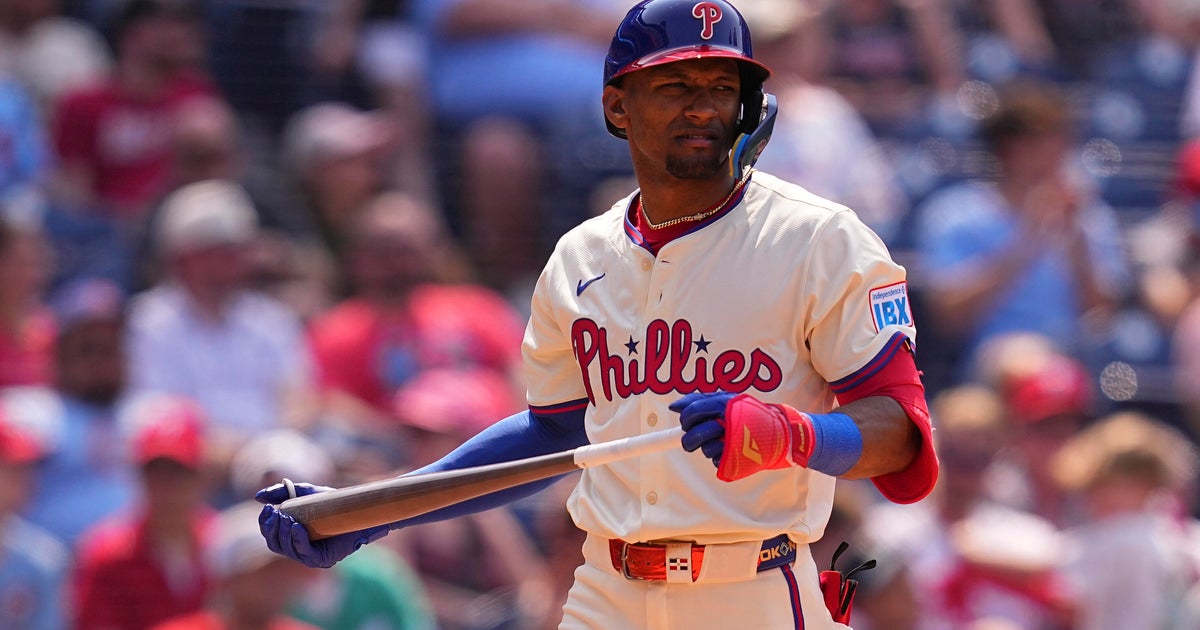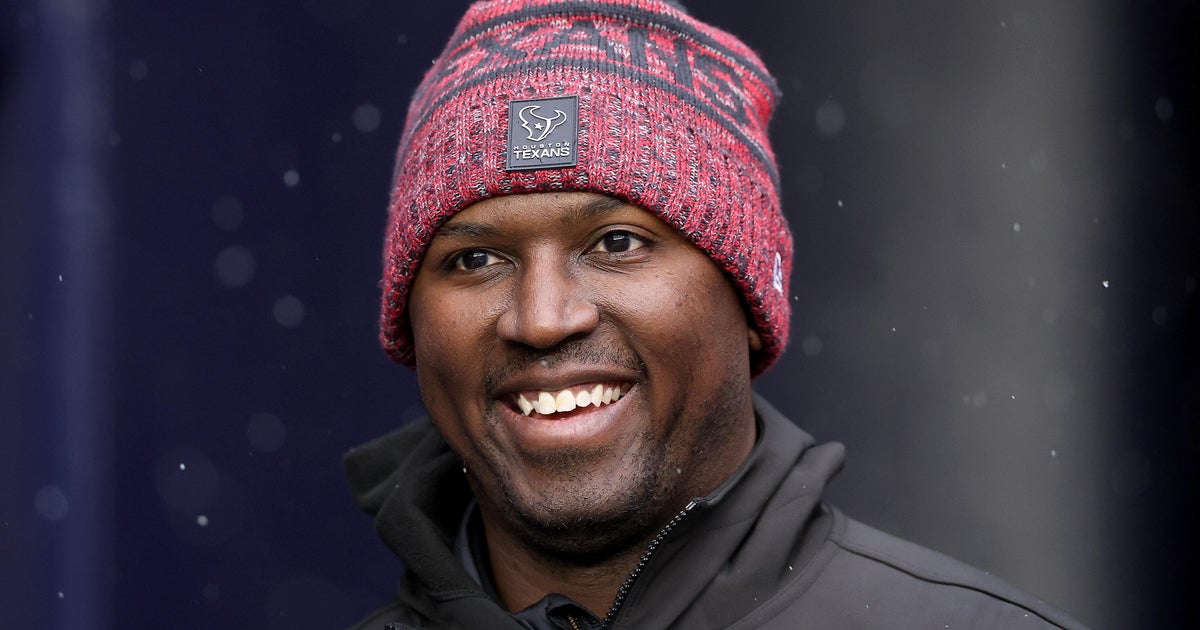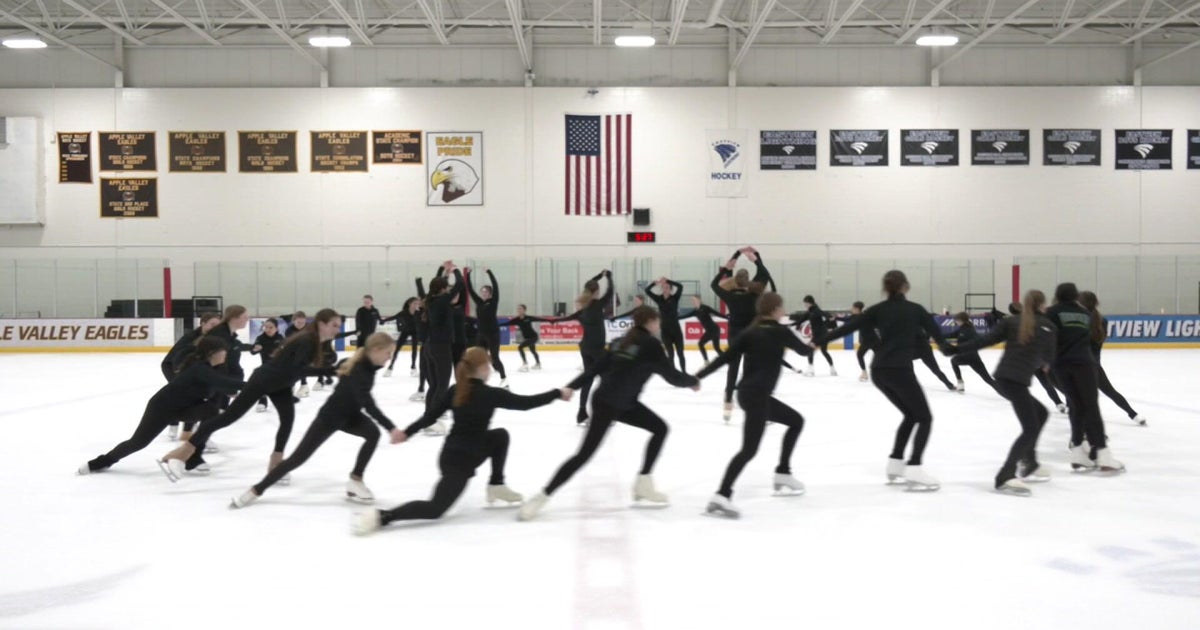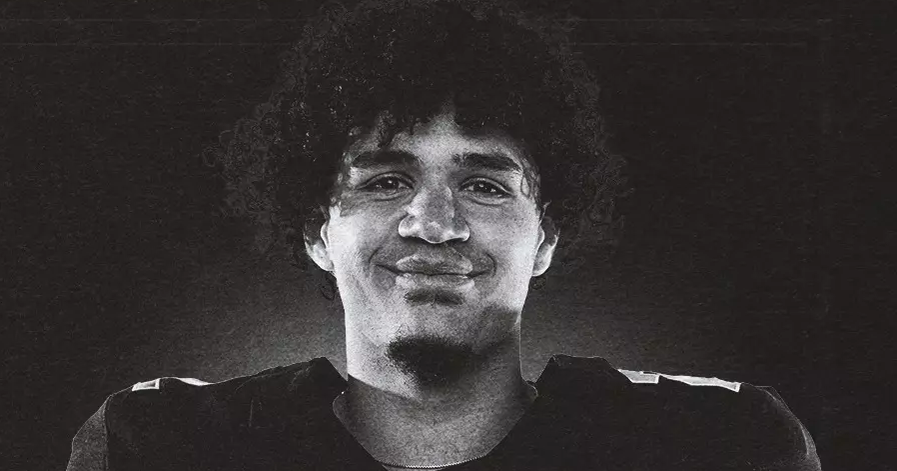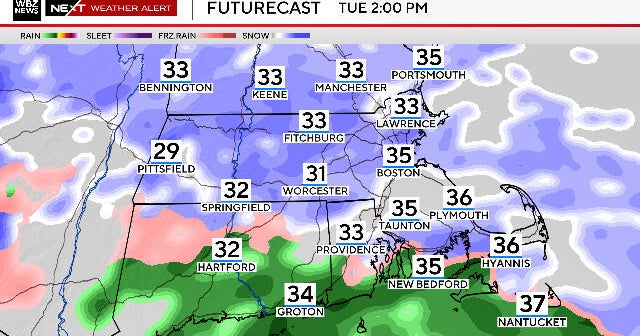Tom Brady's Age 40 Quest: Be Better Than Brett Favre
By Michael Hurley, CBS Boston
BOSTON (CBS) -- There's a lot of uncertainty regarding the short-term future of the New England Patriots at the quarterback position. Interestingly enough, very little of it has to do with the performance of their soon-to-be 40-year-old quarterback.
That's because Tom Brady, already established as one of the greatest quarterbacks of all time when he entered his mid-30s, has undergone a career renaissance in recent years, one that has defied all reason and has exceeded all expectations. As a result, all of that speculation has focused on what the team will do with its young, promising backup quarterback instead of what it will do with its 40-year-old quarterback.
Despite a long history of quarterbacks failing to succeed after crossing the age 40 threshold, Brady has stated without hesitation this offseason that next year will not be his final NFL season. If he has his way, he'll play through his mid-40s. And after his Super Bowl-winning performance last year, he has very few doubters.
What Brady did at age 39 is simply not supposed to be done. In fact, it never had. No matter which way you measure it, no 39-year-old quarterback had ever put together as excellent a season as the one Brady just completed. I documented the stats at the end of the regular season, and it was no contest. But to help fill out the void as if Brady had played an entire season (instead of a suspension-shortened 12-game season), let's add his stats from the three postseason games to his regular-season stats to see what his actual numbers looked like over 15 games. We'll imagine he was benched for rest in Week 17, for the purpose of this exercise:
Brady's 2016 stats (regular season plus postseason):
384-for-574 (66.9%)
4,691 yards
35 TDs, 5 INTs
14-1 record, 108.6 passer rating
(Super Bowl MVP)
Simply put, no 39-year-old in history compares. Warren Moon threw 33 touchdowns, but he also threw 14 interceptions, went 8-8, and posted a 91.5 passer rating. You can even look at 38-year-olds, and only John Elway's 22-TD, 10-INT, 93.0 passer rating season comes anywhere close to Brady's age 39 season. Heck, throw in the 37-year-olds, and Steve Young's 36-TD, 12-INT, 101.1 passer rating season isn't as good as what Brady did at age 39.
Brady's age 39 season was, simply, unprecedented.
But on the list of all-time accomplishments at age 40, Brady's going to have some competition. And it's going to come from -- of all places -- Brett Lorenzo Favre.
Favre threw 22 touchdowns and 22 interceptions at age 39, and he "retired" in the offseason. But after deciding to return, it was at age 40 in 2009 that Favre put together arguably the greatest season of his Hall of Fame career.
Favre's 2009 stats:
363-for-531 (68.4%)
4,202 yards
33 TDs, 7 INTs
12-4 record, 107.2 passer rating
Now, Favre's 2009 season is remembered more for its ending -- a perfectly Favreian interception in the NFC Championship Game to lose out on a trip to Super Bowl XLIV -- than it is for the regular season performance. But even prior to that fateful interception by Tracy Porter, Favre had a pretty decent postseason, completing 43 of 69 passes (62.3%) for 544 yards with five touchdowns and one interception. Alas, that interception essentially wrote the book on Favre's age 40 season.
(Interesting note: Brady was 32 years old in 2009, still very much in his prime. But he threw for a lower completion percentage, threw five fewer touchdowns and threw six more interceptions than the 40-year-old Favre that year.)
Still, that regular-season performance serves as the gold standard for anything a quarterback has done at the age of 40. And Brady has a tendency to enjoy setting new golden standards.
Of course, it would be ludicrous to suggest that Brady will tape a printout of Favre's '09 statistics in his locker as a daily reminder of his statistical goal. It's always the wins that are valued more than the touchdowns or the passer rating. (Side note: With 208 career victories, Brady is still chasing former teammate Adam Vinatieri, who's at 220 and will somehow continue playing in 2017 at the age of 67*.) But after an MVP-caliber season in just 12 games last year, it will be a fascinating sight to see if Brady can replicate those numbers again in 2017.
(*Vinatieri is not actually 67 years old. He's 58.)
Favre's season stands out largely because so many other quarterbacks have failed -- some miserably -- to succeed as the enter their fifth decade of life on the planet. Warren Moon threw seven touchdowns and nine picks in an injury-addled year at 40. Vinny Testaverde had decent numbers in limited time for the Jets in 2003 (seven touchdowns, two picks) but he led the team to a 2-5 record in his starts. Doug Flutie threw just 11 passes in his age 40 season. George Blanda threw just 38 passes -- with three touchdowns and three interceptions -- as a 40-year-old (though he could still kick the heck out of some field goals). Hall of Famer Len Dawson was essentially all done at age 40, starting five games and going 1-4. Hall of Famer Sonny Jurgensen started just four games.
You get the idea. Quarterbacks at age 40 have never really performed. That history led to even a most experienced NFL writer like John Clayton to state that no quarterback at even age 39 should ever be expected to carry a football team to success, let alone 40.
"It's pretty clear that 39 is the breaking point for quarterbacks trying to succeed," Clayton wrote prior to Favre's age 40 season. However, Clayton later added, "Personally, I think Favre could have succeeded this season with the Vikings."
He was correct. And seven years later, Brady performed so well at age 39 that he's now altering the expectations for a 40-year-old quarterback in the NFL.
Comparing Brady and Favre is interesting, at least. Brady just set an NFL record for TD-to-INT ratio by throwing 28 touchdowns and two interceptions. At the same age, instead of that 14-to-1 ratio, Favre went 1-for-1 and led the league in picks.
Favre is, in fact, the all-time leader in interceptions with a mammoth number of 336. Brady ranks 57th on that list -- 57th! -- despite just under 1,945 fewer pass attempts. With a rate of one interception for every 54 passes thrown in his career, Brady paces out to throwing just 188 interceptions in the same number of pass attempts in which Favre threw 336. Taking it a step further and using Brady's interception rate from the past three seasons (one interception for every 91 passes thrown), Brady will throw just 173 interceptions over the course of 10,169 pass attempts.
That's just a hyperanalyzed way of saying that Brady and Favre could not be any more different quarterbacks. They've won roughly the same number of regular season games (Brady 183; Favre 186), though Favre has lost more than twice as many games (Favre 112; Brady 52). In the postseason, Brady owns just about every possible passing record while going 25-9 in 14 postseasons; Favre is 13-11 across 12 postseasons. That preposterously high interception number has a lot to do with that.
So when it comes to the greatest age 40 season of all time, you might have expected someone other than Favre to be holding the crown. And in a world where Brady is always looking for ways to improve his already impeccable game, those 2009 stats from Favre give him something beyond a sixth Lombardi to shoot for.
You can email Michael Hurley or find him on Twitter @michaelFhurley.
